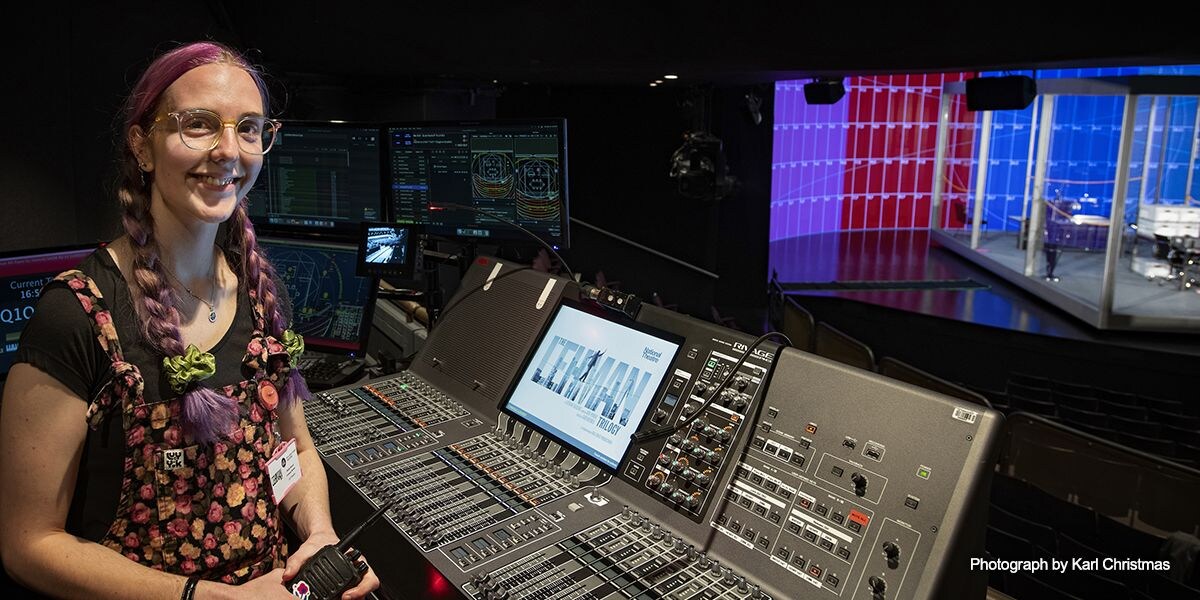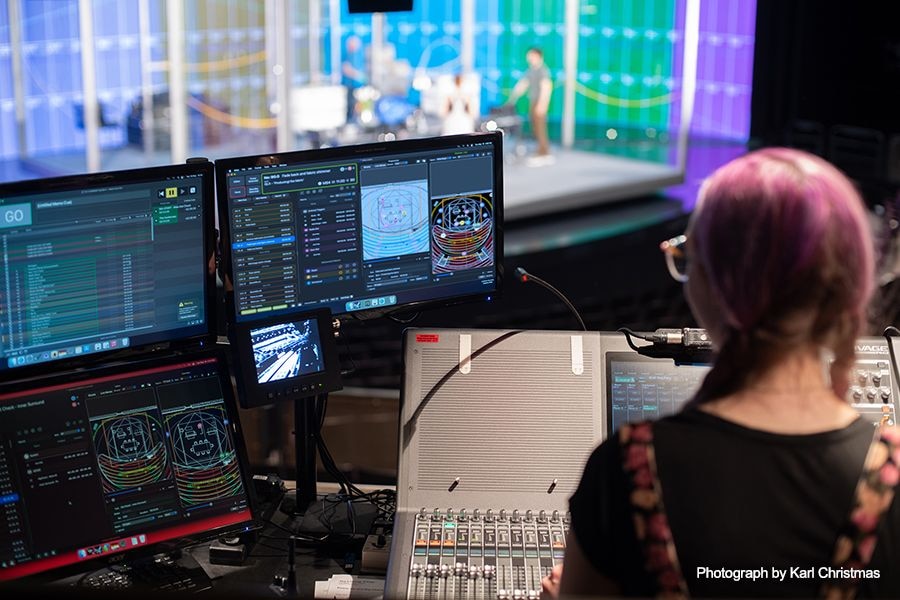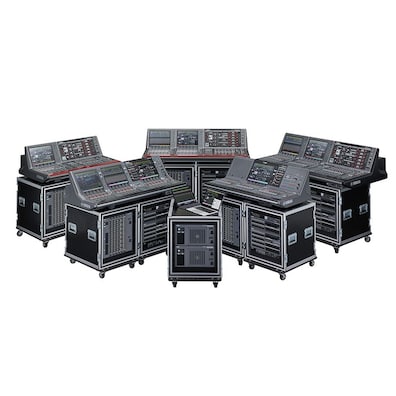The Lehman Trilogy Banks On Yamaha RIVAGE PM3 In Successful London Return

When the multiple Tony Award®-winning The Lehman Trilogy returned to London’s West End earlier this year, UK audiences were again treated to a unique theatrical experience, both in terms of the play and technical production. For this run the sound design switched to a RIVAGE PM3 digital mixing system, showing how a compact solution can support a large, complex audio production.
Having made its debut at the National Theatre’s Lyttleton Theatre, the Sam Mendes-directed The Lehman Trilogy transferred to the West End for a sold-out run, followed by runs on Broadway and in Los Angeles, before returning to London in 2023 for a 17 week season at the Gillian Lynne Theatre. It features a cast of three playing the Lehman brothers, their sons and grandsons in an extraordinary feat of story-telling, told in three parts on a single evening. The action takes place in a unique revolving ‘glass box’ set with scenery projected on a curved video wall, designed by Es Devlin, accompanied throughout by a pianist.
The Lehman Trilogy is the winner of five Tony Awards® including Best Play, along with the Outer Critics Circle Award for Outstanding Broadway production and the Drama League Award for Outstanding Production of a Play. The show’s sound design was by Dominic Bilkey and Nick Powell. Switching to a Yamaha RIVAGE PM3 digital mixing system for the 2023 London run, the audio system was supplied by Cardiff-based Stage Sound Services.
The sound design was based entirely on Dante, which made the architecture extremely flexible for different venues and loudspeaker system designs, while allowing for structured redundancy and topological network architecture. The show’s opening sound operator Vicki Hill undertook the majority of the programming, handing over to Rosie Stroud for the remainder of the 2023 London run.

Sound operator Rosie Stroud with RIVAGE PM3
“We had multiple reasons for choosing RIVAGE PM3 for this run,” says Dominic. “Firstly, given the large network-based audio system, we were looking to simplify the signal chain. The high-density channel count of the HY-144D Dante interface card made the interconnects extremely easy, with the design ethos of the console network providing benefits in the Cat5e console loop infrastructure.
“The small form factor of the control surface also made it an ideal choice for a production where the control surface requirements were minimal, with the playback and effects channel count being high but folded under the surface. By using the RIVAGE network and locating the racks remotely, we were also able to keep the main network and audio equipment located backstage. This minimised heat, fan noise and illumination in the auditorium.”
Another advantage of the RIVAGE system was its OSC implementation. It worked seamlessly with Atlas Show Control for Spatial Audio, an ABTT award-winning custom software solution, developed by Dominic and Jack Lord to make programming spatial sound as straightforward as possible. It communicates with the various system components and the mixing console, giving the operator a single place to control the show from.
“We also used the system’s theatre software for the different settings needed for understudies, as well as managing dynamics across different sections of the show,” Dominic adds.
One of the challenges for the sound design was accommodating the pianist, located off the front of the stage. The instrument was a Yamaha CP-88 keyboard in a prop frame, with one of the main considerations for Dominic and the team being the proximity of the piano to the audience.
“We used the spatial audio system to locate the piano in the room, but included the ability to manipulate the sound level for the audience closest to it,” he says. “It felt more natural for those seats closer to the piano to experience a slightly more piano heavy version of the show than those on the opposite side of the auditorium and the system gave us the flexibility to do that.”
Overall, Dominic pronounced himself very happy with the RIVAGE PM3 system and, with an eye to future productions, Yamaha’s reliability and global reach bring further advantages.
“It was a pleasure to work with. The low latency running in 96kHz was noticeable and, combined with our system changes, this meant it was the lowest latency version of the production so far. Given the proximity of the audience on the curved stage at the Gillian Lynn theatre, that was extremely important. The CSV importing for naming was also great and saved so much time in programming,” he says.
“We were also looking at the potential future life of the show, ensuring that we took the opportunity with the Gillian Lynn run to make it sustainable to tour,” he continues. “As well as the technical benefits, there is Yamaha’s history of reliability and its global support network.
Information
Location
United Kingdom

